Description
Nadimeh’s story comes after the assassination of the President of the United States of America by shooting and killing all members of the Revolutionary Congress in the country.
The country’s official constitution is repealed and a totalitarian, Christian government called Gilead is formed.
The borders of the country are closed. There is no escape route.
Women are the main target of government oppression, and their individual rights and freedoms are severely violated.
They lose permission to work outside the home, ownership of their property, and contact with others under the new law, and are judged on their marital status and fertility.
It is in this state of dictatorship that the reader suddenly becomes acquainted with a new character.
This main character is a niece and is considered one of the master’s assets as usual.
“Afred”, the main character of the story, does not tell much about his life to others. All we know from her is that she was previously married to a divorced man but her marriage has been annulled by the government.
As a result, his child is taken from him and given to another family, and he himself is arrested.
In this book, we will get acquainted with the daily life of this character, and he is a gateway to enter life in “Gilead”.
Nadima’s autobiography, The Handmaid’s Tale, is a Canadian author Margaret Atwood, published in 1985.
Atwood has published many novels and short stories to date and has twice won the Man Booker Prize.
My first Booker Prize in 2000 went to the novel The Blind Assassin. A book that narrates the fate of a family that is directly or indirectly affected by war.
My second Booker Prize in 2019 went to Atwood’s novel The Testaments, which is a sequel to Nadima’s story. A translation of Atwood’s new novel has not yet been published.
According to Nadimeh’s story book and its open ending, and also considering that “Wills” won the Booker Prize, we have to face a very good and exciting book.
A book that can answer many questions from the audience.
But first, one must read the story of Nadima, a novel that Houston Chronicle said: “Read it as long as this book is allowed.”
The Washington Post – Book World also wrote about Margaret Atwood’s novel The Story of Nadima:
Nadimeh’s story is a novel mixed with humor, fear and warning that reveals the dark mix of politics and male-female relations in an artistic way.
In terms of his futuristic imagination, Atwood’s novel is somewhat reminiscent of Orwell’s 1984 book.
Margaret Atwood’s book depicts a ruined city, an anti-ideal society, or Dystopia. A society called Jalid is governed by a theocratic government.
Theocratic government is a government in which religion rules. In the book we read that everything that is done is for the sake of the gospel. Or at least subordinates are told that this is the case.
In an anti-ideal book society that focuses on women, they have no rights.
Of course, not all women have unimaginable strictures just for women.
Ladies for whom there is no such thing as individual freedom.
They are constantly monitored, writing or reading is forbidden, they have no right to own or speak. There are even sharp objects or mirrors or any kind of glass in the room where Nadimeh lives, so that no one thinks of committing suicide.
Each lady can go out to shop only once a day, during which time another lady is with her.
But as mentioned, there is no talking or talking among the ladies, in fact, each of them is spying on the other side.
In this society, due to a series of events, most people are infertile.
But the word “sterile” is forbidden, and given the existing strictures, it can be assumed that the government says that only “women” are sterile, not men.
This is where the role of the Nadims comes into play. Naturally, women do not have the opportunity to have relations with any man except the commanders appointed by the government. Commanders whose wives are incapable of having children.
Interestingly, any commander whose Nadima has children will be promoted, but Nadima will be sent to another commander for another term.
His only reward is that he is not sent to the colonies – where old women, nieces who have served three terms and have no children, as well as the incorrigible – go.
Among all the facilities available to Nadima in the commander’s house is to bring up a healthy child and nothing else.
The story of Nadimeh’s story is told in the language of “Afard” – the main character.
A woman who tries not to lose herself, her memories and, most importantly, her identity, despite all the hardships. People write their memoirs is not an easy task, and in the meantime, they also write about their past lives and their families.
Also about when the Jalid government was formed.
Then came the catastrophe, when the president was assassinated and Congress was shot, and the military declared a state of emergency.
They blamed the Muslims falsely. People were constantly invited to calm down on TV.
They said everything was under control. That was when the constitution was repealed. They said it was temporary.
Everything you have read so far is from the description of people’s daily lives.
But the main story and events begin when one realizes an underground organization.
An organization that has good information and is made up of serious opponents of the government. It is this organization that keeps hope alive in the hearts of individuals, albeit low, and….
On the back cover of the book, there is a summary of the story of Nadimeh’s story, which is as follows:
Individuals are a minority in the theocratic government of Jalid. He is allowed to leave the house of the commander and his wife once a day to shop in the bazaar, where pictures have replaced words because women no longer have the right to read.
The coyote goes to bed once and prays to conceive from the commander, because in an age when fertility is declining, the value of individuals and other coyotes is only in the fertility of their womb.
The man remembers years ago, when he lived with his wife, Luke, and fell in love with her;
The days when he played with his daughter and took care of her; In those days he had a job and an income, and he had the right to study. But now everything is gone.
It seems that in this ruined city, the government is seeking racial reform. It has not been long since “Jalid” was formed and there are people who remember the past and the good of that time.
There are still people like “individuals” who know that women had rights in the past. And this is an alarm for the rulers.
So, they would only resort to this as a last resort.
Aunt Lydia, one of the scary characters who is always remembered with a certain grandeur, explains to people that in the future, the girls will behave better and there is no need to exercise so much supervision and violence.
Aunt Lydia describes the next generation:
You are a transitional generation. Hardest for you. We know what sacrifices you are expected to make.
When men criticize you, you suffer a lot. The situation is simpler for those who come after you. They willingly accept their duties.
In contrast to this forced correction, the work of the main character – that is, writing memoirs and not forgetting the past – becomes very important.
The restrictions on women are very strict, but as people say, the guards and the government are more worried than anything else;
Worried about the ways that only open inside a person and give a person spirit and superiority.
The atmosphere of Nadima’s story book is dark, in fact it is very dark, and wherever this is the case, rebellious people always appear.
People who are not willing to give up. There are also rebellious people in the novel, but we must not forget that what people do is far more important.
At the end of the book, there is a chapter that answers important questions about the book, but the opening end of the book is very well arranged and, as mentioned at the beginning, the continuation of this novel should be very readable and interesting.
Much can be written about Nadimeh’s novel. Every security measure taken by the government is debatable, but there is nothing better than reading the book yourself and dealing with the events of the novel.
Margaret Atwood wrote her novel inspired by three prominent works: 1984 by George Orwell, The Beautiful New World by Aldous Huxley, and Fahrenheit 451 by Ray Bradbury.
Books that are each very strong in this genre.
Orwell’s novel is undoubtedly strong enough to be ranked first, but Nadima’s biography is also very strong.
As you know, movies and series have been made based on this book. Nadimeh’s story series is one of the best series based on the book.
The bottom line is that the translation of this book and of course its editing could have been much better. There are flaws in the book that do not hurt the reader’s understanding of the subject, but they can be fixed to get a very good book.
Sentences from Nadimeh’s biography
I want to have some time before I die to do my job.
If they think of a kiss, they should immediately think of the lights that come on and the guns that are fired.
Instead, they think about doing their duty and being promoted to the rank of angels, that they can get married, and then, if they are strong enough and live long enough, they will in turn have gifts.
Six other corpses hang from the main gate, hanging, hands clasped from the front, and heads in white bags tilted over their shoulders.
The men were probably cleansed earlier this morning. I did not hear the sound of the bells. Maybe I’m used to their voices and can no longer hear them.
I was gasping for breath. Uttered a forbidden word. Sterile. There is no such thing as a barren man, there is no more formality. These are just women who are fertile or infertile. This is the law.
Does he know that I’m here, alive, thinking about him? I have to think so.
One in distress has to believe in everything hopeful. I no longer believe in mental communication, ethereal vibrations and this kind of fur. I have never believed in such things before.
Some commanders do not have a midwife. Some of their wives have children. The motto is: From each woman, depending on her abilities, for each man according to his needs. After dessert, we repeat this slogan three times.
These were sentences from the Bible, or so they said.
How could I be jealous of a woman who was so empty and sad? One envies only one who considers his possessions to be his beautification.
Something had happened, but we had been undecided for several weeks.
Newspapers were censored. Some of them were closed. They said it was for security reasons. Checkpoints were set up, and ID cards.
Everyone agreed, because it was clear that one could not be cautious enough to rely on oneself. New elections were said to be taking place, but it will take some time to prepare.
People are willing to do anything but accept the meaninglessness of their lives.
Now it’s time for the main part.
Twenty angels, who have just returned from the battlefield and have just won medals, enter with an honorary soldier and walk in the middle of the courtyard.
Notify! Free! And now twenty girls with their veils, white-headed, shy, come forward, their mothers grabbing their elbows and accompanying them.
These days, it is not the fathers, but the mothers who marry their daughters and prepare for their marriage.
Their marriage is arranged. For years, these girls have not been allowed to be alone with a man for even a moment, but we have been living the same way for years.
From behind one of the closed doors comes the sound of laughter, the sound of a man and a woman laughing. I have not heard this sound for a long time.
When power is highly concentrated, everyone will be tempted to take a small part of it.
Review of Nadimeh’s biography
Historically, fundamental differences between men and women have led to discrimination against women. With the advancement of human science and insight, people’s judgments about the ability and status of women have gradually changed.
A change that, over the years and the formation of various intellectual movements, still works.
Margaret Atwood, Canada’s most prominent literary figure and women’s rights activist, explicitly portrays gender discrimination and gendered views in the context of a revolution at an unknown time, in Nadimeh’s biography.
About the Author of The Story of a Lady: Margaret Atwood; The most prominent figure in Canadian literature
Margaret Atwood is a Canadian writer, social activist, and feminist who was born in November 1939 into an educated family.
His father was an entomologist, and Margaret Atwood became acquainted with nature as a child; As its effect is evident in his works.
He had a talent for writing from the beginning, so much so that his first poems date back to his childhood and pre-school years.
Atwood began his studies at Victoria College at the University of Toronto and published his poems and articles in the journal Acta Victoriana.
He was also involved in theater in college. Margaret had the chance to be a student of Jane J. McPherson, a Canadian poet, and Hermann Northrop Fry, a literary theorist and influential figure of the twentieth century.
Margaret is an educated figure who has risen to the highest levels.
After graduating with a degree in English literature and studying philosophy and the French language, she was able to receive a postgraduate scholarship to Radcliffe College, Liberal Women’s College in Massachusetts, and dropped out of her doctoral studies two years later.
In the early years of his studies, he published the book “The Twin of Persephone”, which included his poems, for which he received the AG Portra Award.
At the age of 25, he began teaching at the University of British Columbia in Vancouver and continued his studies at other universities, including Sir George Williams University in Montreal and the University of Alberta.
Margaret Atwood received the Governor’s General Award in 1966 for her book The Story of Nadima, which reflects her feminist concerns.
In 1968, she married American author Jim Pollack but divorced him five years later, after which she moved to a farm near Ontario with Canadian novelist Grim Gibson.
Six collections of poetry and three novels were published by him in the 1980s, and in the years that followed, Margaret rose to fame with the Arthur Clarke Prize and the Booker Prize.
Following his literary success, he was named Canada’s Walk of Fame for many years with the publication of The Blind Assassin. In 2008, Atwood published a collection of five lectures in a book called Payback: Debt and the Shadow Side of Wealth, which has not yet been translated into Persian.
His keen interest in literature and other writers led him to write a novel called The Seed of Magic, which is a rewrite of Shakespeare’s Storm. Atwood has a prolific life and has won numerous international awards for his work and many honorary degrees from various universities such as Oxford, Sorbonne and Columbia.
Part of the text of Nadimeh’s story
Most terrifying of all is the bags on their heads, more terrifying than their faces could have been. It resembles men in sculptures whose faces have not yet been designed. It is as if they are scarecrows made to scare.
Or as if their heads are sacks, full of inseparable substances, such as flour or dough. The weight of their heads, their vacancies, their being pulled down by gravity, is no longer vital to keep them in place. The heads are zero.
But if you look and look, as we do, you can see the lines of their faces under the white cloth, like shades of gray. The heads are the heads of snowmen whose charcoal eyes and carrot noses have fallen off. “The heads are melting.”
1- Introducing the book on YouTube
2- Introducing the book in Aparat




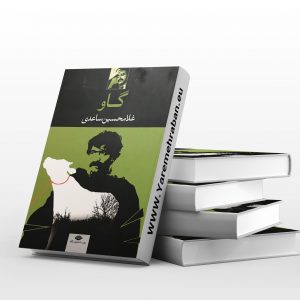

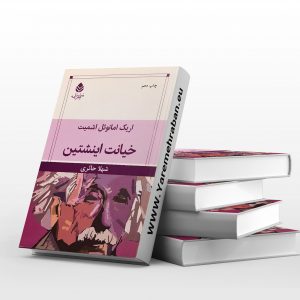
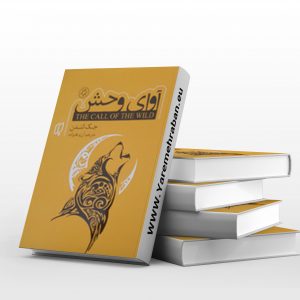
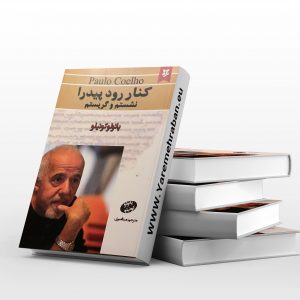

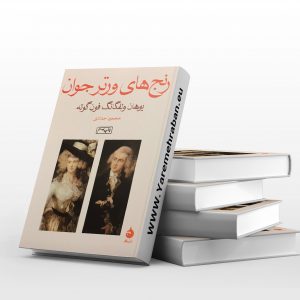
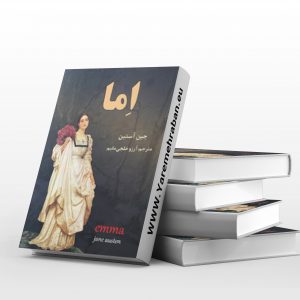


Reviews
There are no reviews yet.